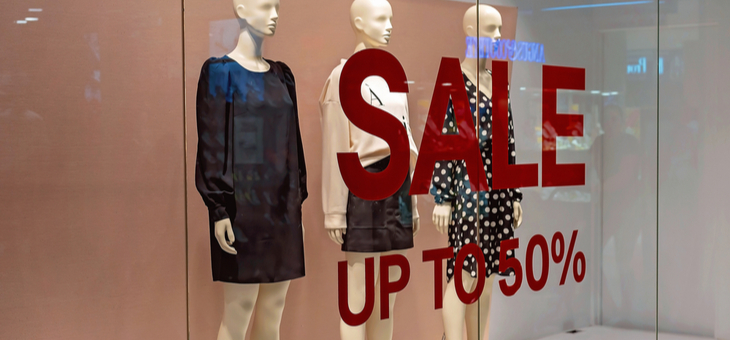Australians buying clothes this Christmas and in the new year are being urged to consider who made the items and how much they were paid.
Oxfam’s Shopping A Bargain report criticises major retailers such as Best&Less, Big W, Kmart, Cotton On and Myer for contributing to poor wage and labour practices.
Oxfam Australia CEO Lyn Morgain told businessinsider.com.au that shoppers “should demand big brands end this cycle and do better in the way they do business”.
“The research reveals unfair purchasing practices are pressuring factories into adopting poor working conditions and paying unacceptably low wages,” she said.
“It found that these poor purchasing practices of brands are making it impossible for factories to increase wages, despite many of the same brands making public commitments to ensure the payment of living wages. Instead, wages are trapping workers – mainly women – and their families in a cycle of poverty.”
The report says manufacturers are put under intense pressure by “aggressive price negotiation, inaccurate forecasting of orders, late orders, short lead times and last-minute changes to orders”, resulting in poor working conditions and low pay for workers.
It also found brands “rated themselves higher than their factory partners would, indicating a failure to understand the impact of their behaviour”, according to insideretail.com.au.
“Mosaic Brands and the Just Group were labelled the worst performers overall, while Best&Less seemed to have the largest discrepancy between its own rating and its factory’s rating. Additionally, the report found that product prices do not necessarily equate to more sustainably made products or more ethically treated workers, with Myer’s more expensive clothing falling short of H&M’s more affordable wares on both accounts.”
The Oxfam research, conducted with Monash University, examined 10 top Australian fashion retailers with workers in Bangladesh using 150 surveys and 22 interviews with factory owners, workers, union leaders, NGOs and brand representatives.
More than 80 per cent of Australia’s $22 billion fashion industry relies on products made in nations such as Bangladesh, India, China, Indonesia and Vietnam. Approximately 80 per cent of workers in those factories are women.
In 2017, Oxfam’s What She Makes campaign revealed that in the average supply chain of Australian garment retailers, only 4 per cent of the price of a piece of clothing is paid as wages to workers.
“That is just 40 cents from a $10 T-shirt. In countries like Bangladesh, where wages are extremely low, the situation is even direr,” the Oxfam report said. “An average of just 2 per cent of the price we pay in Australia goes towards factory wages. That means just 20 cents out of the price of a $10 T-shirt.”
Oxfam argues that paying living wages is easily achievable.
“Even if big companies passed the entire cost of paying living wages to all workers on to consumers, Deloitte estimates this would increase the price of a piece of clothing sold in Australia by just 1 per cent. That is just 10 cents extra for a $10 T-shirt. With profits being made at the factory, wholesale and retail levels in garment supply chains, there is room for big brands to absorb these costs without passing them on to the people who buy their clothes.”
In Bangladesh, the local minimum wage equates to just 39 Australian cents an hour. In Vietnam it is just 64 cents and in China it is 93 cents.
“While these workers remain entrenched in poverty, chief executive officers (CEOs) continue to take home massive payments and many big brands are increasing their profits,” says Oxfam. “There is perhaps no starker example of the growing global inequality crisis than the garment industry, where millions remain trapped in poverty on one hand, while a few amass great wealth on the other.”
Oxfam estimates that it would take a Bangladeshi garment worker earning the minimum wage more than 4000 years to earn the same amount that Australian CEOs get paid in one year.
Do you consider workers when you buy clothes? Are you happy to pay a little more if it helps provide a living wage for a worker in another country?
If you enjoy our content, don’t keep it to yourself. Share our free eNews with your friends and encourage them to sign up.
Related articles:
https://www.yourlifechoices.com.au/work/news/women-earning-25000-less-than-men
https://www.yourlifechoices.com.au/news/workers-score-minimum-wage-increase
https://www.yourlifechoices.com.au/retirement-affordability-index/cpi-returns-to-normal-transmission

